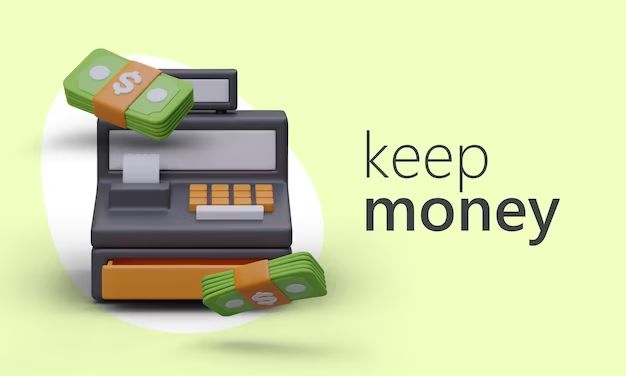Having cash on hand can be useful for making purchases, tipping, or just as an emergency fund. However, carrying large amounts of cash or keeping it at home raises concerns about theft or loss. Thankfully, there are ways to keep your cash secure while still having it accessible as needed.
Page Contents
Should you keep cash at home?
Here are some quick pros and cons of keeping cash at home:
| Pros | Cons |
|---|---|
|
|
Generally, it’s wise to limit the amount of cash stored at home. Some experts recommend keeping no more than $1,000 to $2,000 available for emergencies. Anything above this level may be better protected elsewhere.
How to safeguard cash at home
If you do choose to keep some cash at home, here are tips to store it more securely:
- Hide it cleverly. Avoid obvious spots like underwear drawers. Instead, slip cash inside books, sealed food containers, or hollowed-out items.
- Use a home safe, preferably one bolted down. Look for safes with pry-resistant doors, interior hinges, and metal construction.
- Only tell trustworthy housemates or family members. The more who know, the less secure your cash.
- Create a dummy stash. Store a small amount visibly to hand over in case of a break-in.
- Keep collections small and scattered. Divide cash into envelopes around the house rather than one hoard.
- Check regularly for water damage or tampering. Make sure your hiding spots remain undiscovered.
Using home safes
Home safes can be an effective way to secure cash and other valuables. Here are some factors to consider:
| Safe Feature | What to Look For |
|---|---|
| Construction | Thick steel walls resist cutting tools. Look for at least 10 gauge thickness. |
| Lock type | Digital keypads, fingerprint locks, or combination locks all work. Avoid key locks. |
| Fire protection | Fireproof safes protect contents in temperatures up to 1700°F. |
| Bolt-down ability | Pre-drilled holes allow securing the safe to the floor. |
| Hidden design | Diversion safes conceal within other objects like books or cans. |
Be sure to bolt down your safe when possible, as this makes it much harder to steal. Also pay attention to weight – heavier safes are more difficult to remove or carry off site.
Other options for cash storage
While home storage can work for limited amounts, other options exist to keep larger cash reserves safe:
Safe deposit box
Bank safe deposit boxes offer highly secure storage for cash and valuables. You’ll pay an annual rental fee, but your contents are protected in a reinforced vault.
Home safe installation
Professionally installed in-home safes are anchored into the floor or wall framing. This makes removal extremely difficult.
Offshore storage
Foreign bank accounts and vaults provide privacy and security for large cash holdings. However, they can be inconvenient to access when needed.
Self-storage unit
A climate-controlled storage unit with keypad access is relatively affordable. Use multiple locks on your storage container for better security.
Protecting cash from damage
Cash left lying around risks water damage or just degrading over time. Here are smart ways to protect paper money condition:
- Seal cash in plastic bags or storage containers to prevent dampness.
- Unfold bills neatly and stack evenly to avoid creasing.
- Consider vacuum sealing for long-term cash savings. This prevents air exposure.
- Store cash in cool, dry spots. Avoid attics, basements, or garages with humidity.
- Handle gently and avoid writing on bills. Treat cash as the valuable asset it is.
Is cash safe from government seizure?
There are limits on how much cash you can legally carry. For example, travelers entering the U.S. must declare amounts over $10,000 or risk confiscation. Banks must also report transactions over $10,000. While legal, keeping large cash reserves may invite suspicion from authorities about criminal activity, tax evasion, or hiding assets.
Conclusion
Cash may always have its place, though digital payments grow more convenient and secure. With prudent precautions like home safes, creative hiding spots, and proper storage, you can safely keep limited cash reserves. For large amounts, rely on secure institutions. In the end, your personal comfort level with risk should guide your cash storage decisions.
